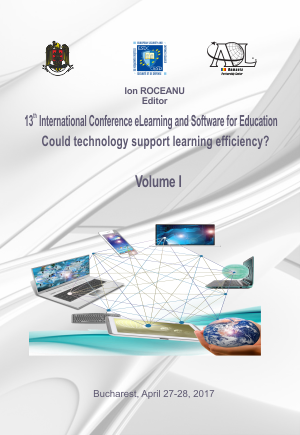PROBLEM SOLVING COMPETENCE DEVELOPED THROUGH A VIRTUAL LEARNING ENVIRONMENT IN A EUROPEAN CONTEXT
PROBLEM SOLVING COMPETENCE DEVELOPED THROUGH A VIRTUAL LEARNING ENVIRONMENT IN A EUROPEAN CONTEXT
Author(s): Marina Marchisio, Alice Barana, Michele FIORAVERA, Anna Brancaccio, Claudio PARDINI, Sergio RabellinoSubject(s): Social Sciences, Education
Published by: Carol I National Defence University Publishing House
Keywords: Advanced Computing Environment; Mathematics learning; Problem Posing; Problem Solving; Teaching good practices; Virtual Learning Environment.
Summary/Abstract: In modern societies, life itself is a problem solving. OCSE-PISA defined the problem-solving competence as the capacity to engage in cognitive processing to understand and solve problem situations where a method of solution is not immediately obvious. Hence in teaching Mathematics, and in general scientific subjects, it becomes important to adopt new methods centred on student learning, which are able not only to deliver knowledge but also to enhance the competence in problem solving. It is essential to start from simulated real-life problem situations in order to explain new concepts, since it enables students to understand the application of Mathematics as well as to enhance their ability to regulate problem-solving processes. The University of Turin has adopted problem solving digital methodologies using a virtual learning environment integrated with an advanced computing environment, automatic assessment and a web conference system. This set of technologies promote interaction among students and help teachers guide and coach their students in creating, conjecturing, exploring, testing and verifying. In the Erasmus+ Project SMART – Science and Mathematics Advanced Research in good Teaching - the University of Turin shared these methodologies with other European partners (Strategic Partnership Key action). The aim of this exchange of best practices is to obtain Mathematics and Science teachers who are more involved in the methodology and consequently students who are better equipped to develop coherent mental representations of problem situations, more flexible in incorporating feedback and in reflecting. In the paper, examples of interactive material produced and tested in the Project are presented and the results of the experience are discussed.
Journal: Conference proceedings of »eLearning and Software for Education« (eLSE)
- Issue Year: 13/2017
- Issue No: 01
- Page Range: 455-463
- Page Count: 9
- Language: English

